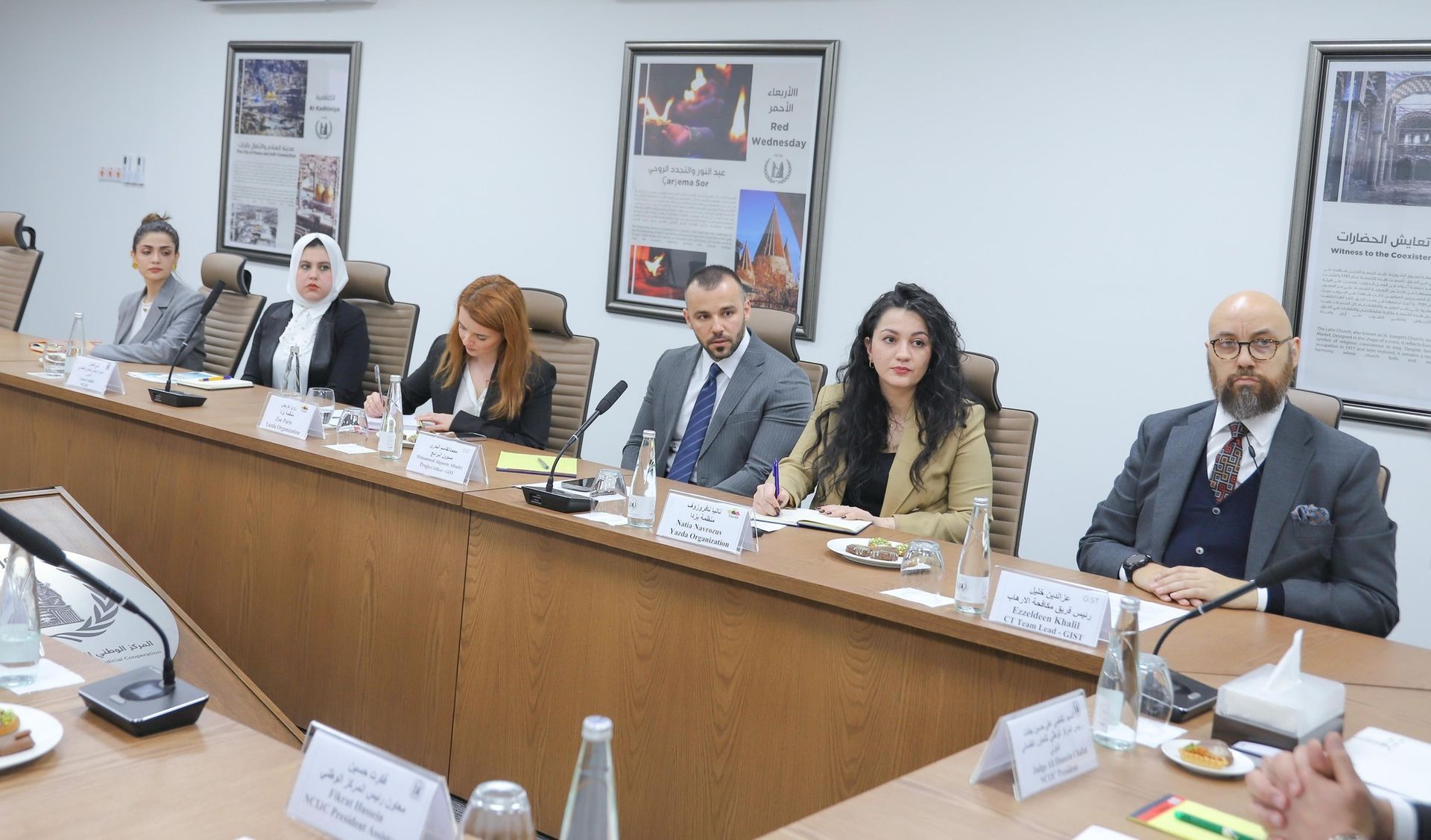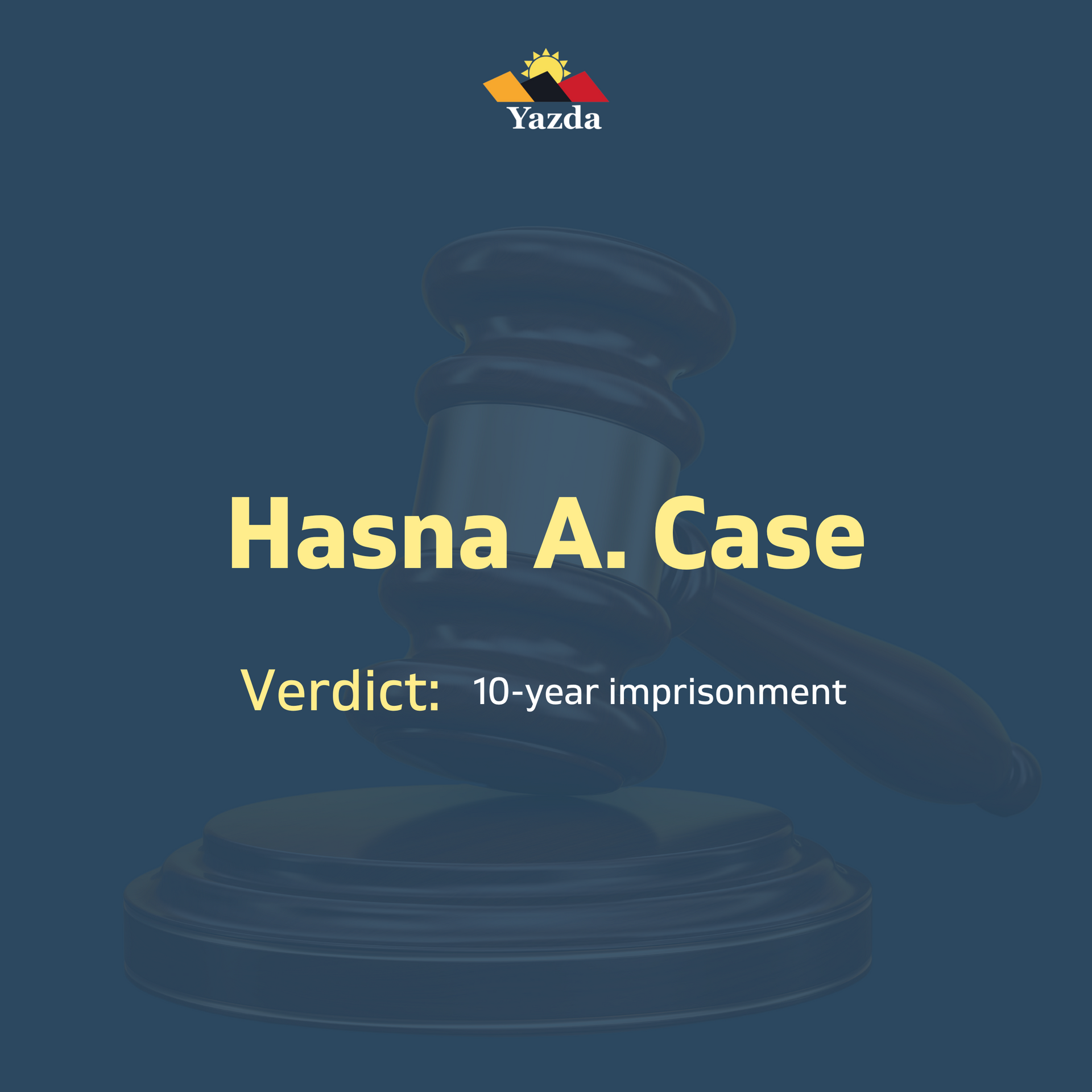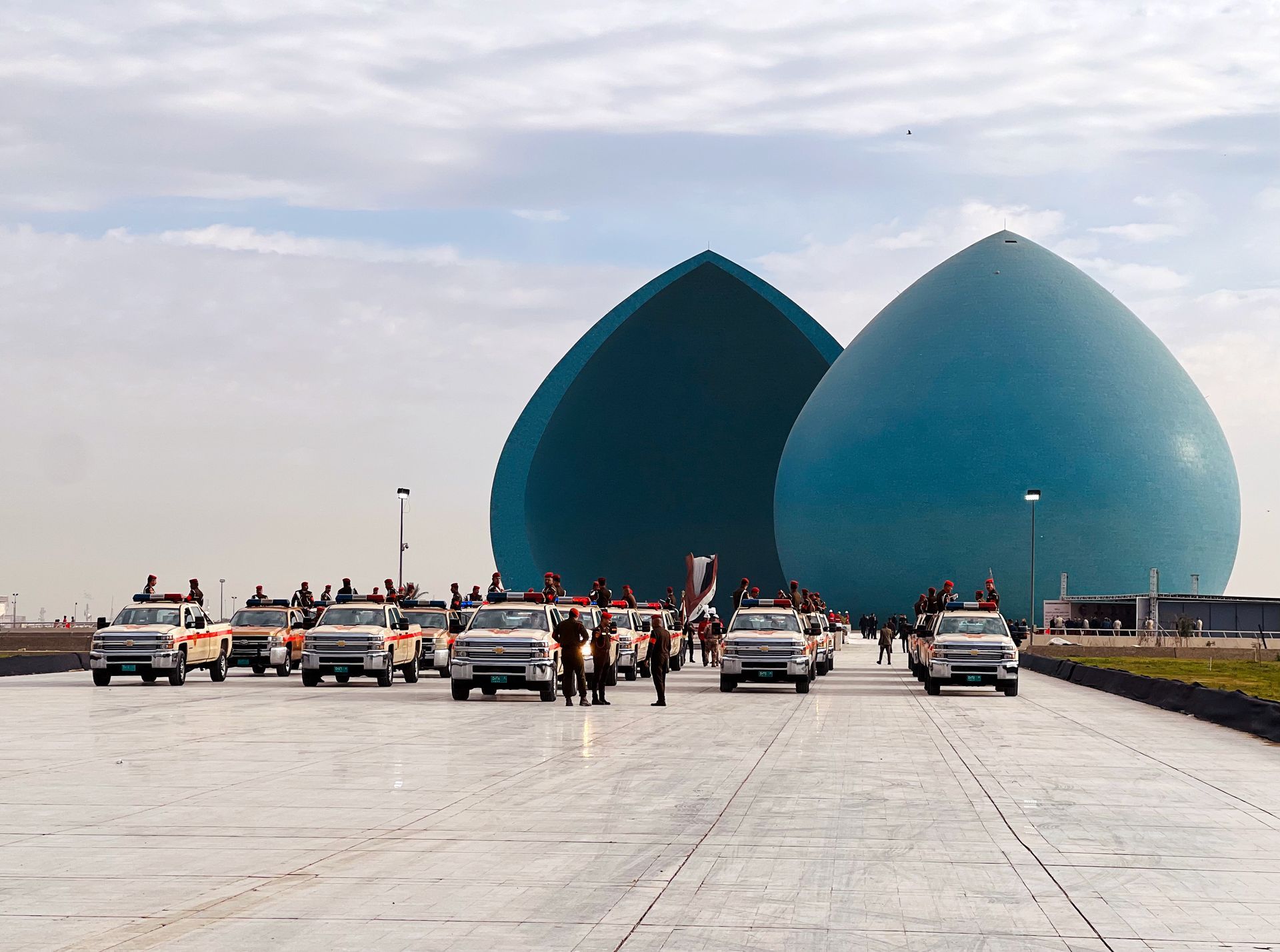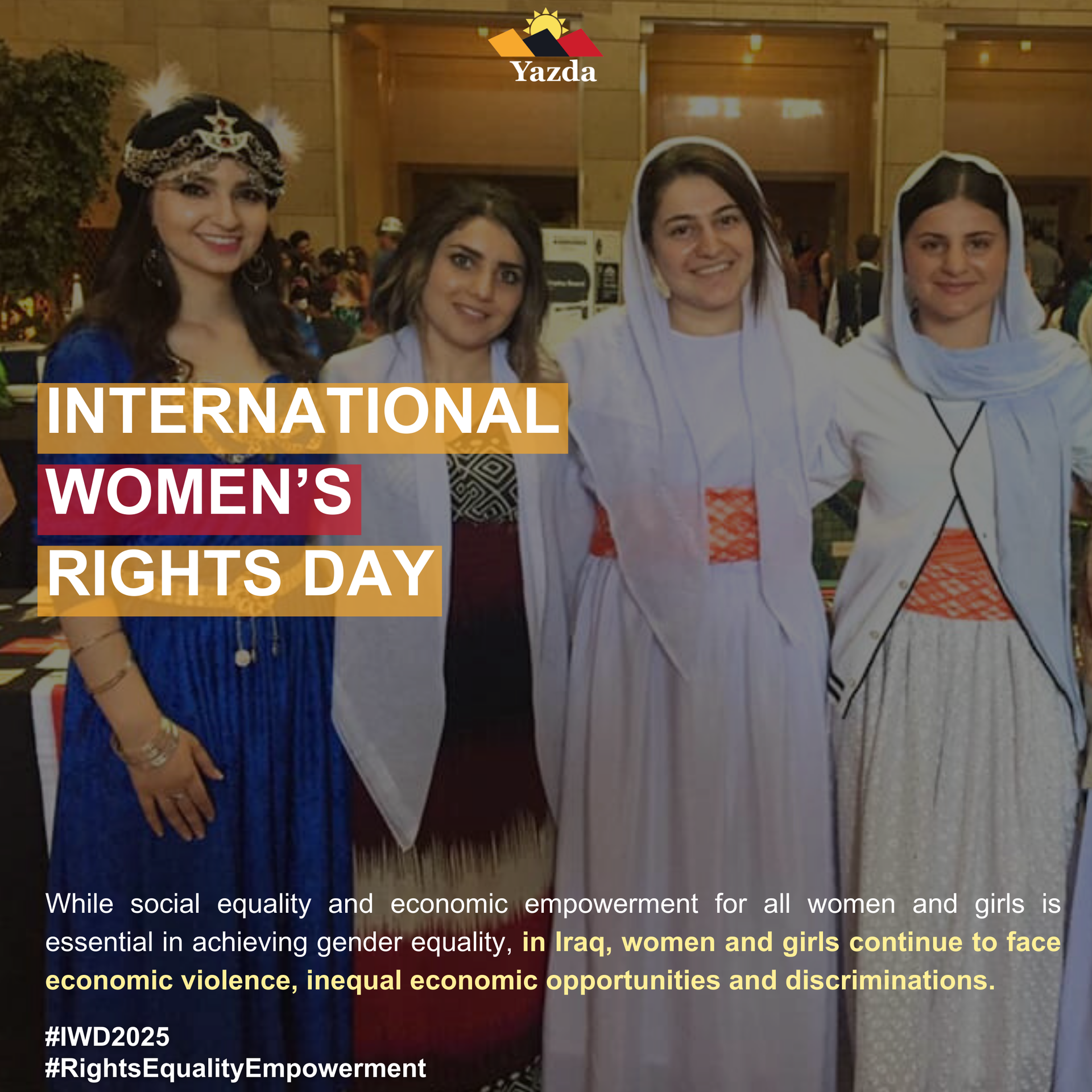Date:
Issued on:
Last updated:
August 2, 2019
August 2, 2019
August 2, 2019
Contact:
Phone:
Email:
Munich, Germany. Today, on the eve of the 5th anniversary of the attacks on Sinjar by the Islamic State (IS), RASHID International, Yazda and the Endangered Archaeology in the Middle East and North Africa Project (EAMENA) release the results of their investigation into cultural heritage destruction during the genocide against the Yazidis, in a report entitled “Destroying the Soul of the Yazidis: Cultural Heritage Destruction during the Islamic State’s Genocide against the Yazidis” Out of the total of 68 sites reported destroyed we consider 16 sites in the Bahzani/Bashiqa area and 8 in the Sinjar area to which access was possible and which could be documented. We present the results of our investigation to the international the results of our investigation to the international community in order for these deeds to not go unacknowledged and unpunished.
“In producing and publishing this report on the eve of the 5th anniversary of Daesh’s genocidal assaults on the peace loving Yazidi peoples of northern Iraq, we aim to keep in the public eye the magnitude of suffering and persecution endured by the Yazidis in the summer of 2014
and in following years”, says Professor Roger Matthews, President of RASHID International.”
Discussions of the genocide committed against the Yazidi people by IS from 2014 onwards have generally focused on murder, slavery and sexual exploitation. In this report we analyze the destruction of Yazidi tangible and intangible cultural heritage as a significant facet of the Islamic State's policy of ethnic cleansing and genocide. Evidence of destruction is collected and presented in context with other criminal acts.
Section 1 introduces the Yazidi (Êzidî being the preferred term) people and their strong connection to their cultural heritage.
Section 2 provides an overview of the genocide against the Yazidis. The Islamic State made no secret of its intention to eradicate the Yazidi community and commenced a coldly calculated policy of ethnic cleansing and genocide on 3 August 2014.
Section 3 analyzes the relevant framework of international criminal law. The destruction of tangible cultural heritage is most easily prosecuted as a war crime. Several convictions were obtained before theICTY, as well as one conviction (AlMahdi) and one indictment (Ag Mahmoud) before the International Criminal Court. Attacks against tangible heritage may also be prosecuted as the crime of persecution, a crime
against humanity. Numerous indictments and convictions before the International Criminal Tribunal for the Former Yugoslavia (ICTY) and other courts attest to the viability of this approach.Finally, destruction of tangible heritage also serves as evidence of the special intent to destroy
(dolus specialis) a protected group as part of the crime of genocide.
Section 4 provides original research, evidence and context on the destruction of Yazidi tangible cultural heritage in the Bahzani/Bashiqa and Sinjar areas of northern Iraq. We present satellite imagery analysis conducted by the EAMENA Project, drawing on data provided by Yazidi
representatives.
According to the Department of Yazidi Affairs in the Ministry of Awqaf and Religious Affairs in the Kurdistan Regional Government 68 Yazidi sites were destroyed by the Islamic State. We consider 16 sites in the Bahzani/Bashiqa area and 8 in the Sinjar area to which access was possible and which couldbe documented. We include description and religious importance of each site, satellite analysis and photographic evidence.
Section 5
offers conclusions and recommendations. We conclude that the destruction of the cultural heritage of the Yazidi people constitutes a war crime, a crime against humanity (persecution) and further evidence of genocide. “There is strong evidence of the systematic intentional destruction of tangible cultural heritage by the Islamic State, coupled with the systematic attempt to destroy Yazidi traditions, memories, customs and other forms of intangible cultural heritage through a coordinated policy of murder, slavery, sexual exploitation and brainwashing of children,” says Seán Fobbe, Chief Legal Officer of RASHID International and lead author of the report.
We recommend that the ICC and national prosecutors open investigations wherever
jurisdiction allows. We further recommend the consideration of cultural heritage destruction in anyprosecution of international crimes, especially the crime of genocideAdding Lalish Temple and its surroundings to the World Heritage List and the List of Cultural Property under Enhanced
Protection should be a key priority for the international community. We urge the international community to assist with the reconstruction of Sinjar and Bahzani/ Bashiqa to prevent Yazidi culture from being lost forever.
RASHID International e.V. is a worldwide network of archaeologists, cultural heritage experts and professionals dedicated to safeguarding and promoting the cultural heritage of Iraq, ancient Mesopotamia.We are committed to developing the history and archaeology of Iraqi cultures, for we believe that understanding the past is key to addressing the present and to building a prosperous future.
https://rashid-international.org
Supported by the Arcadia Fund and the Cultural Protection Fund and based at the Universities of Oxford, Leicester, andDurham, the Endangered Archaeology in the Middle East and North Africa Project (EAMENA) was established in January 2015 to respond to the increasing threats to archaeological heritage in the Middle East and North Africa. EAMENA uses satellite imagery to rapidly record and evaluate the status of archaeological sites and landscapes which are underthreat. It seeks to create accessible data which can be used by national and international heritage professionals to target those sites most in danger, and to better plan and implement the preservation and protection of this heritage. Visit us at http://eamena.arch.ox.ac.uk/
For more information, please contact:
Ahmed Khudida Burjus
Deputy Director
Yazda
info@yazda.org
Seán Fobbe
Chief Legal Officer
RASHID International
legal@rashid-interntational.org
Professor Graham Philip
EAMENA Project
Durham University
Download press release
here.





300 North 27th Street, Suite C.
Lincoln, Nebraska 68503, USA
info@yazda.org
All Rights Reserved | Yazda

